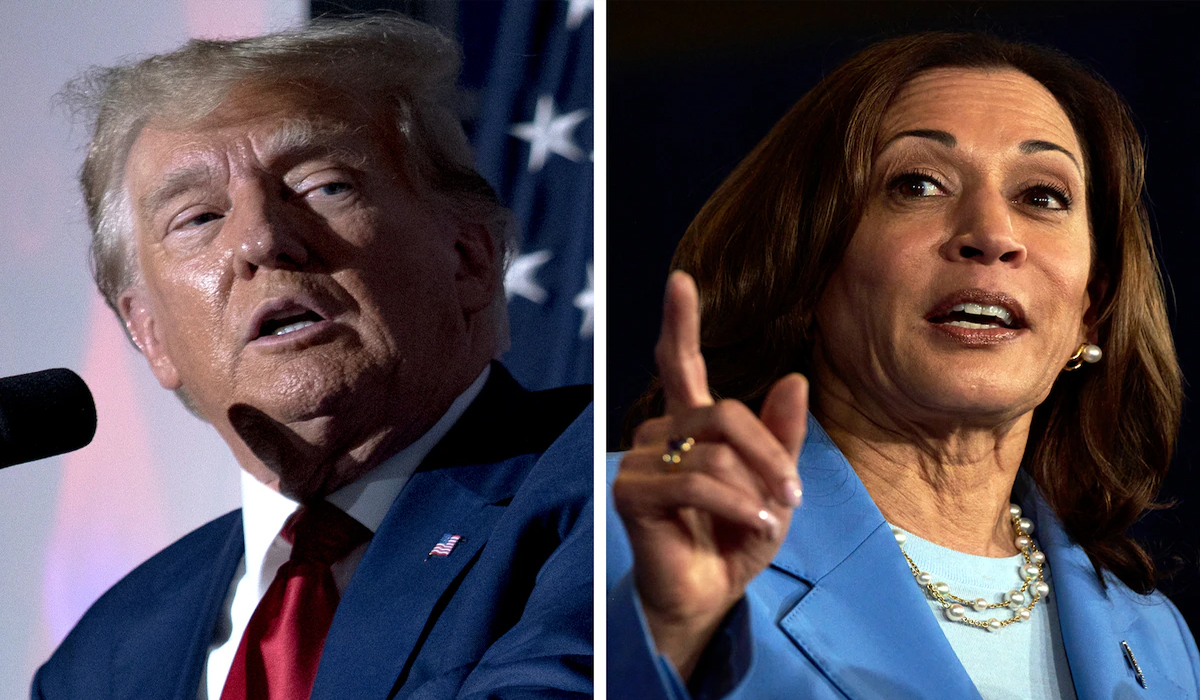
Washington: Americans are heading to the polls today to cast their ballots in the highly contested 2024 presidential election, where Democratic candidate Kamala Harris and her Republican rival, Donald Trump, are locked in a tight race.
This is the 60th presidential election in the US. It is interesting to note that there are 230 million eligible voters, but only about 160 million of them are registered. More than 70 million people have already voted through postal ballots or at early in-person polling stations.
With elections around the corner, there are several things that one should know. Here are a few things to know about the Presidential elections.
Eligibility
To run for President of the United States, candidates must meet three basic requirements. According to the US Constitution, the president must be a natural-born citizen of the United States; be at least 35 years old; and have been a resident of the United States for 14 years. Anyone who meets these requirements can declare their candidacy for president. Once a candidate raises or spends more than USD 5,000 for their campaign, they must register with the Federal Election Commission. That includes naming a principal campaign committee to raise and spend campaign funds.
Primaries and caucuses
Primaries and caucuses are two ways that people help states and political parties choose presidential nominees. Most states hold primaries six to nine months before a presidential election. Primary voters choose their preferred candidate anonymously by casting secret ballots. The state where the primary is held takes the results of the vote into account to award delegates to the winners.
On the other hand, several states hold caucuses in the months leading up to a presidential election. Caucuses are meetings run by political parties that are held at the county, district, or precinct level. Some caucuses choose candidates by secret ballot. Others require participants to divide themselves into groups according to the candidate they support. Undecided participants form their own group. Each candidate’s group gives speeches and tries to get others to join their group. At the end, the number of delegates given to each candidate is based on the number of caucus votes they received.
Electoral College and Popular Vote
The Electoral College decides who will be elected president and vice president of the US and is a process that includes selection of electors; meeting of electors who cast votes for the president and vice president; and counting of the electors’ votes by Congress. Notably, the president and vice president are not elected directly by citizens. Instead, they are chosen through the Electoral College process. Each state’s political parties choose their own slate of potential electors. There are a total of 538 electoral votes. A candidate needs the vote of at least 270 electors–more than half of all electors–to win the presidential election.
The popular vote, on the other hand, is simply the votes garnered by the candidate. It is pertinent to note that there have been instances when a candidate got more popular votes but lost out on the electoral college.
Presidential election timeline
Spring of the year before an election: Candidates register with the Federal Election Commission to run for president. Spring of the year before an election: Candidates announce their intentions to run. Summer of the year before an election through spring of the election year: Primary and caucus debates take place. January to June of election year: States and parties hold presidential primaries and caucuses. July to early September: Parties hold nominating conventions to choose their presidential candidates. Just before or during the convention, the presidential candidate announces their vice presidential running mate. September and October: Candidates participate in presidential debates. Early November: Election day is the first Tuesday after the first Monday. December: Electors cast their votes for president in the Electoral College. Early January of the next calendar year: Congress counts the electoral votes. January 20: Presidential Inauguration Day
